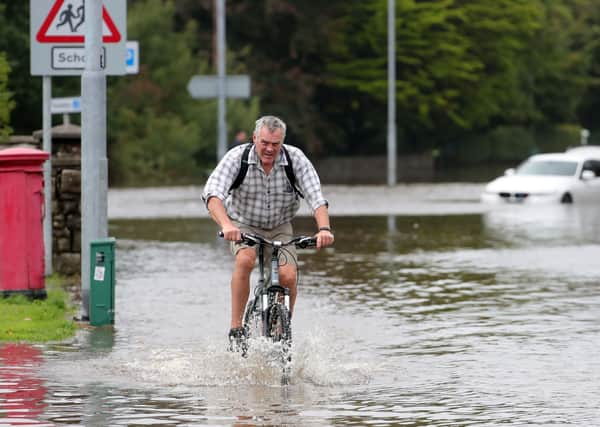Records show Northern Ireland had dullest summer in over three decades


Reports from Armagh Observatory show that June, July and August proved to be the dullest summer for 33 years, the wettest for eight years and the coolest for five years.
Ironically it occurred when the ability to escape to warmer climes was curtailed due to the coronavirus lockdown.
Advertisement
Hide AdAdvertisement
Hide AdThe figures from the College Hill site in Armagh for August showed it was the wettest there since 2008, and both warmer and duller than average.
The same month was also hit by two named storms – Ellen and Francis, the latter of which gave rise to the wettest day when nearly 30mm of rainfall was recorded on August 24.
Despite the rain and wind the average temperature for the month was recorded at 16 degrees, 1.4 degrees higher than the long-term average from 1796 to 2010.
Professor Mark E Bailey, Emeritus Director of Armagh Observatory, summed up the findings: “In contrast to the previous year, which was the sunniest August for 16 years, this August 2020 recorded just 122.2 hours of strong sunshine.
Advertisement
Hide AdAdvertisement
Hide Ad“This was approximately 85% of the long-term (1881–2010) average number of hours of strong sunshine at Armagh and nearly 92% of the most recent (1981–2010) 30-year average, making this the dullest August at Armagh for two years.”
He continued: “Taking the three months – June, July and August – together, the meteorological summer 2020 was the dullest at Armagh for 33 years and the third dullest on record since daily sunshine records began at the Observatory in 1880.”
The three dullest summers at Armagh are now 1980 (281.8 hours of strong sunshine), 1987 (291.6 hours) and 2020 (294.1 hours).
Of August’s figures Professor Bailey said: “Total summer precipitation was 302.05 mm (11.9 inches). This was nearly 40% more than the long-term average summer precipitation at Armagh and 53% more than the most recent 30-year average.
Advertisement
Hide AdAdvertisement
Hide Ad“This was the wettest summer at Armagh for eight years, that is, since the very wet summer 2012.”
The depressing spell of weather comes after the record-breaking sunny spells experienced during March, April and May.
Statistics for those three months showed the sunniest meteorological spring recorded by Armagh Observatory since it began monitoring sunshine 140 years ago.
A total of 567 hours of “strong sunshine” were recorded by the observatory from March 1 to May 31.
It was also the driest spring recorded in 150 years at the observatory.